The UK has reaffirmed its commitment to the Ottawa Convention banning anti-personnel landmines, even as five NATO allies signal plans to withdraw from the treaty.
Responding to a written question from Lord Lancaster of Kimbolton, Defence Minister Lord Coaker confirmed that the government is aware of the announcements by Poland, Finland, Lithuania, Estonia and Latvia to leave the Ottawa Convention.
“The UK acknowledges and shares concerns about the security environment in the region as a result of Russia’s illegal invasion of Ukraine,” said Lord Coaker. “We also acknowledge that it is the sovereign right of those countries to make this decision.”
The UK, he said, would continue to engage bilaterally with these nations on the actions they plan to take, while working to “mitigate impacts on vital arms control and disarmament norms.”
Lord Coaker stressed that the Ottawa Convention continues to play “an important role in protecting civilians from harm caused by anti-personnel landmines.” He reiterated that the UK’s commitment to the treaty “remains unwavering.”
“We continue to encourage countries to join the Ottawa Convention, subscribe to its provisions, and discourage states from using anti-personnel landmines,” he added.
The response follows growing concern over whether the evolving security situation on NATO’s eastern flank could undermine international disarmament efforts. Advocates of the Ottawa Convention warn that any erosion of support for the treaty could lead to a resurgence in the use of indiscriminate weapons banned under international law.
Lord Coaker noted that the UK continues to express its support for the Convention in public forums, citing a recent statement by Baroness Chapman during a House of Lords debate on landmines and cluster munitions in April.
The Ottawa Convention, formally known as the Convention on the Prohibition of the Use, Stockpiling, Production and Transfer of Anti-Personnel Mines and on their Destruction, was signed in 1997 and has more than 160 signatory states.


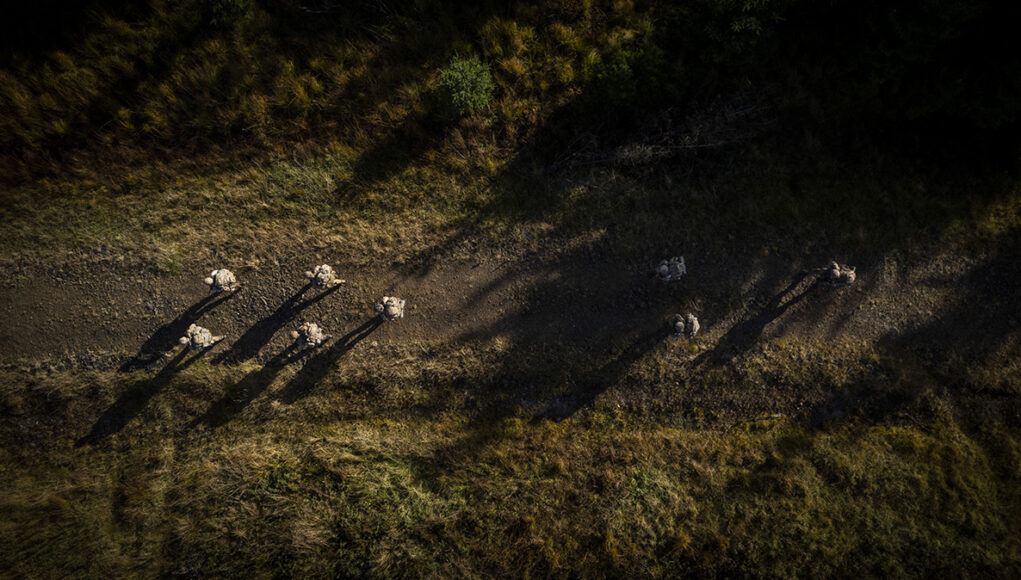


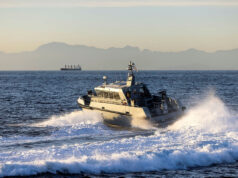
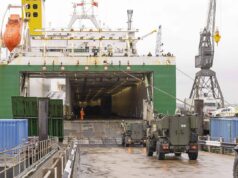

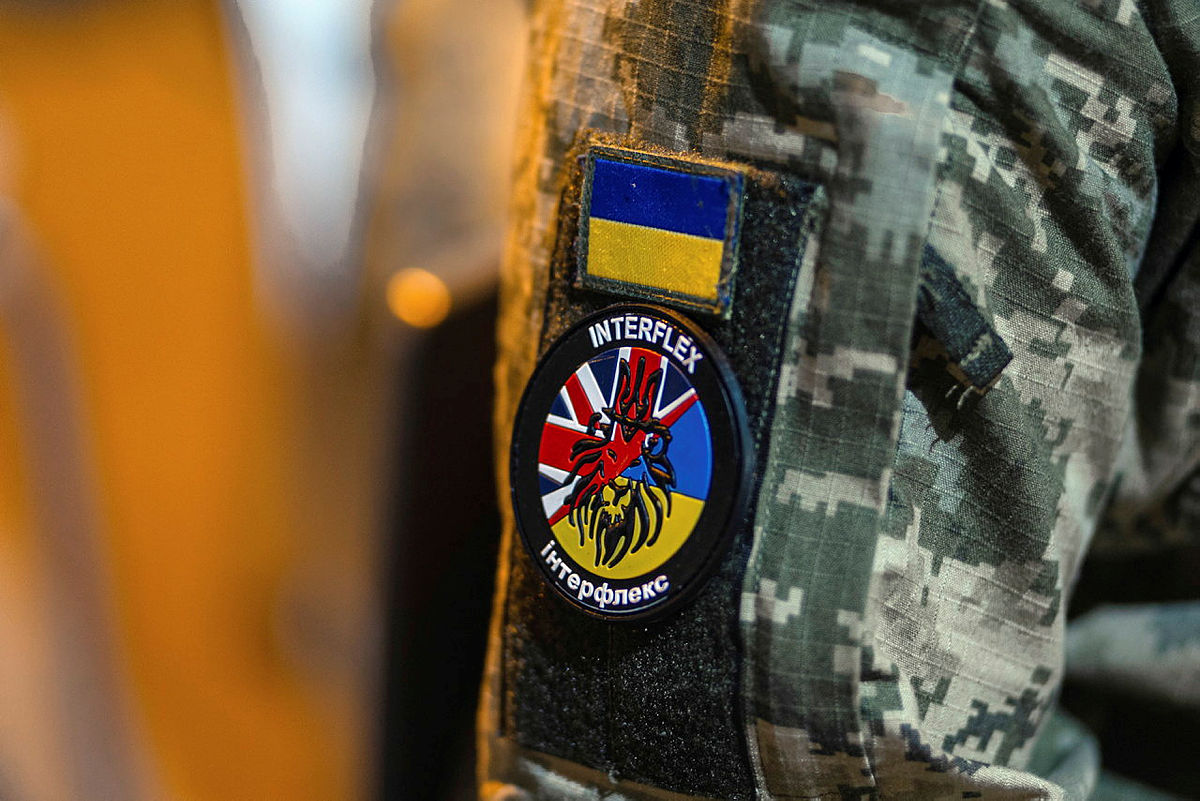
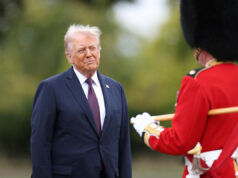
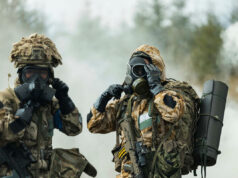



No need for us to go back to landmines. The Baltic countries should leave the treaty and maybe Poland. They can build up stockpiles as required. Such needs were always viewed as appropriate under the treaty and it was a major reason for the US not joining due to the need to defend North Korea.
However it’s very important that we do not re normalise land mines as a weapon of war. They were banned for good reason and at some point when Putin and Xi are dead we can go back to reestablishing more peaceful world order. The vast majority of people in Russia, China and Iran just want to lead normal lives in a free society like everyone else.
Do you mean South Korea?
I meant defend from North Korea.
These countries are looking to slow an enemy down until support arrives. They will be the countries where they conflict happens – not belgium next time round. Can’t say I blame them. I suspect if the enemy had paused across the channel our view might be different but then so might our choice of Governent.
What commander, with his troops outnumbered and being pressed hard, is going to give a damn about a scrap of paper called “the Ottawa treaty”? Of course Ukraine is violating it. What option is there?
The landmines treaty, which can be violated relatively easily, is pure virtue signaling by countries who believed that the world would remain peaceful forever.
Well said 💯
Roy,
You miss the point. As a signatory of the Ottawa treaty we do not have AP mines, so that commander you mention who is determined to use them against Treaty won’t be able to do.
Great for the troops who may die as a result … but fortunately there are a range of things that one can do to improvise anti-personnel landmines and it would be immoral for any commander not to try to do it when required.
These “luxury beliefs” by Jim fit quite rightly the person.
1st Question of the day: A British Brigade in frontline in Baltics would impede deploying anti personnel mines? Or a British general commanding a NATO division refuses it?
2nd Question of the day: how the Trident and nuclear dissuation is valid – those things are to destroy and make radiocative cities and large land areas if UK do not even have a spine to use anti personnel mines?
3rd Question of the day : are British troops instructed on how to make traps with for example an hand grenade -basically a ap mine – or that is forbidden?
Of course, it’s one less thing to have to buy.
100%. Plus… it looks like we are heading into a new world order where the international rules based system is dead and gone, and good intentions don’t stop bullets.
Point(s) awarded for touch, whether contest is w/ foil, epee, or saber! 🤔😁👍👍😉
How naive
Not really there is almost no situation in which the Uk armed forces would need to use victim activated anti personal mines. They can still use anti vehicle mines and user command detonates devices. If you have a large fixed frontier with an enemy then yep they have a use…
So there isn’t a battle group in the Baltics?
And that battle group is in someone else’s country so will not be laying down anti personnel mines.. if the Baltic states want to lay down massed fixed antipersonnel land mines then they will.. our battle group is a mobile combined arms battle group.. they have the ability to lay and use operator controlled mines and anti vehicle mines.. if they needed that and they can lay a perfectly adequate defensive minefield using those capabilities..tactical minefields are there to impact on an enemies abilities to manoeuvre and for that you use anti vehicle mines..
You feel and are a good bit safer if you can lay recoverable mines (AP and Claymore) in front of your positions! Anti tank mine fields take a good while,planning and resources to lay!
OK please explain why the Batlic countries need the force multipler to defend their country and why the smaller UK formation on the same terrain doesn’t
If you are withdrawing, you might want to drop lines behind you to delay hostile following forces and buy more time. If you are advancing you might want to mine likely reinforcement routes.
From a SF/SOF pov mines are very useful, used along the line Terry used to use IEDs.
Anti vehicle mines have anti tempering guess what happens if you temper with…
Ron, yes there is a British BG in Estonia, a part of NATO’s eFP mission.
But are you saying that is justification for using weapons banned by international Treaty?
This decision should rest with the local commanders on the ground? not from political ivory tower
Nope the tools that a local commander has is a political question not a tactical question.. how the local commander uses the resources and capabilities they are given is a tactical decision.
Unless politicians have a clear view of the enemy, the tactical threat and their TTPs then they should never dictate the use of local assets. Yet the same politicians are happy to press a nuclear button to kill millions of innocents.
Land mines were the darling of the left’s non-offensive defence concepts in the 1980s. Then the ideology shifted and they became the worst weapon of war ever invented even though western militaries had nothing to do with the indiscriminate seeding of landmines in Angola or Afghanistan. … so it was Time to do some virtue signaling and the landmines treaty – which actually has zero impact on the indiscriminate use of landmines – was invented. … but now the landmines treaty (like the Kellog Briand Pact banning war) has run into this pesky thing called “reality”.
“Land mines were the darling of the left’s non-offensive defence concepts in the 1980s. ”
Even before that, lets remember that 70% of US casualities in Vietname was traps and mines.
You feel that way about chemical weapons too? Let local commanders decide whether to use mustard gas or not? Maybe let them decide whether to follow the Geneva Convention perhaps?
do you think the 2 are comparable? if so you need some fresh air
Seem to remember Mcarthur requesting 26 nuclear nombs in Korea because the situation on the ground required it 😀
So the local commander can go for nuclear release without any reference to the government?
Reportedly that was the case for Soviet forces with regard to tactical weapons. Utterly ridiculous idea, but then that’s a Russian specialty…
Well I can assure you when the mines were banned the troops saw it as withdrawal of a means to protect our positions in defence!
We were not a happy bunch😡 they were also used in an anti tank mine field as a defence from infiltrators messing around with our mines!
All in the name of looking good for lady Di🙄
No because countries that are covered in anti personal mines have a huge problem for at least a generation. Our forces are also guests and it’s the nation our forces are guests in who decide if they want to use victim actived land mines..
I’m talking mines that can be recovered. When you lay a mine field all types of mines used are mapped for future recovery and so your own side doesn’t blow them selves up!
Though less of a problem than they would have if occupied by an invader…
Yeah Jacko but what happens when those same recoverable mines make their way to a conflict in Angola or as in Afghanistan we retreat and don’t come back to recover them.
We signed the treaty for good resason and it’s had great effects.
My concern is more on the side of cluster munitions; DPICM rounds from 155 mm arty have been instrumental in breaking up Russian attacks on Ukrainian positions, yet the treaty also bans them (unless I’m mistaken).
I understand that, when the treaty was signed, dud rates were very high- I would expect that lower rates could be achieved. If we are to be involved in a land war in Europe, I think that DPICM or similar for our artillery (tube and rocket) and maybe even our mortars (the 120 mm ones), would be invaluable.
Hi Joe it’s a completely different treaty.. the convention on cluster munitions.. this one I think probably needs to go as our enemies are using cluster munitions Willy Nilly.
Ah, thanks for the correction.
Yes, I wouldn’t be entirely surprised if we looked to quietly withdraw from the cluster munitions one while stating loudly that we’re staying in the landmines one!
Cluster munitions are also mines.
“Yes, I wouldn’t be entirely surprised if we looked to quietly withdraw from the cluster munitions one while stating loudly that we’re staying in the landmines one!”
When fashion dictates policy you can have hypocrital policies.
I suppose all explosive rounds by British Army would have to have a timer to explode…maybe that is the reason there is no IFV… lots of 30mm Rarden non exploded rounds around are nothing more than mines…
We are in NATO, so our willingness to support development, manufacture and deployment of weapon systems should be mindful of the needs of all NATO member states, not just our own national use-cases. The effectiveness of NATO’s collective defence is undermined when its military-industrial capacity is hampered by needlessly differing policies on what kind of weapon systems are/are not acceptable.
Erm… I’d disagree with that. Victim Operated Landmines are actually pretty useful even in the offence.
The UK fighting potentially a delaying action in the Baltics, and working with allied paramilitaries/doing partnered resistance would for sure have benefit from landmines as a way of disrupting and delaying hostile forces.
I think if UK forces are mining approaches to Tartu to delay Russian tank columns, there’s probably a tacit understanding by the host nation about it.
Makes sense for coutries with limted manpower bordering Russia to want mines. If I lived there I would demand them.
Another thin worth a mention re civilian causalties, tech has evolved. Thee are mines that are battery operated and will cease to be live after a period of time, so won’t pose a threat to civilians years down the line after conflict has stopped.
Not sure if remotely activated mines are going to be developped in the future, maybe something to look at?
Yes, bluetooth detected in a Chinese accent, followed by boom.🤣
remote does not necessarily mean wireless which can be troublesome with EW, maybe even hacking.
if it’s to defend your countriy’s borders, which gives you plenty of time to set up, you can have underground wires which would allow you to turn it off so friendly troops can advance and turn back on when enemy is inbound.
furthermore such a system could be used to devastating effect. ie you have the mine field on standby, let the enemy proceed and when the bulk of his troops are deep in the minefield, you switch it on causing massive carnage, instead of having only the first few units tigger mines and alert the rest of the battlegroup.
But also they need to be operated, you need to keep eyes on, command wires create linear features that increase risk of detection, as ever there are pros but also cons.
Mines have proven vital in the defence of Ukraine. If I was on the frontline in a battle against the Russians I don’t think I’d really care about the legacy of Princess Di if they stopped a T90 from mashing up my Section.
What about the arms and legs of children? I guess that you don’t care about those either.
There are mines now that time out and become inert after a set period.
I also guarantee if you had a massed column of Russian forces advancing on your position and are able to call in strikes from artillery able to scatter these on the enemy then you would be all for them.
In the actual fight this will cost our services lives.
THIS👍
This isn’t really a solution. Mines become inert after a set period which makes safe passage for friendly troops (assuming there are no issues with the mines, which if made at scale there might well be), but over years in the ground they corrode and degrade and become a UXO hazard again.
Honestly if 6 nato members feel they need mines then I’m not bothered.
Most of the ex infantry I know support using them.
The lives of our service members mean more to me than anything else.
Especially a campaign led by people that have never served and never will
Andy, I’m not anti Mine. I’m pointing out that mines which deactivate themselves don’t solve the issue of UXO causing civilian casualties long after the warm
“What about the arms and legs of children? I guess that you don’t care about those either.”
I guess UK should not have fought the Nazis… wait …
Invasion of occupied France killed 70000 French persons(including children) just by air bombing…now apply your thoughts to that.
It kills much less children winning the war faster.
Yes and anti tank mines are not part of this…
Fair enough. Substitute T90 with Motor Rifle Platoon.
Since when are not part of this? do you want to allow the enemy to take them for own use?
If the U.K. became embroiled in a major conflict then we would be on the phone to the US requesting these munitions very quickly because sadly they are still very useful in modern warfare. The moral argument is obvious particularly so when discussing these matters during a dinner party in north London but sorry this type of outlook would not last long after the shooting started.
The reality is that the US, Russia, China, India and Pakistan are notable non signatories of the treaty.
True.
They seem to being used in Ukraine as giant handgrenades tossed into trenches or buildings. Look like the AT version maybe even old SU stock but I have no idea of shelflife.
Rules are only worth having if your enemy uses and abides by the same ones.
Not really. International Support is a thing, and showing yourself to care about treaties and bring humanitarian can gain international support.
“Rules are only worth having if your enemy uses and abides by the same ones.”
Yes and you should disobey them if the enemy is profitting from disobiance that mak in qustion your capacity. UK have nukes to destroy cities. I am sure that is not a legal behavior…
US Army manual says that under the command of an officer, troops can engage in non legal behavior to force the enemny to behave legally.
Yep. the banning of cluster munitions is another one. Obama had most of the US cluster munitions/MLRS rockets destroyed. What good did that do? The army stored some of them away to give to ukraine, but they destroyed millions of MLRS rockets and artillery rounds because of it. Complete waste.
Totally agree. The moral high ground on issues like this unfortunately doesn’t measure up to today’s world. Do I want to do all I can to avoid civilian casualties due to mines? – of course. Do I want to be able to win a war against people who, were they to be dictating affairs, would have no such morals – of course. It strikes me that the latter is a necessary precondition for the former.
These kind of fine feelings are the same as those that led to major western financial sponsors black listing defence stocks for the past few years – the abject folly of which is only now being (quietly) recognised.
Wakey, wakey..
What happens when you vote in a human rights lawyer as PM.
He doesnt get that you fight wars to WIN, not get a pat on the back for following rules.
It makes more sense to possess them but to consider the implication of using them more stringently before employment. I mean, we stock nuclear weapons do we not.
It seems a bizarre treaty when put into context – especially when you take a 2 second glance at the Ukr front line.
Well put
A policy commitment from a government surrounded by water.